 |
| Crazy Chaos by Yaoyao Ma Van As |
Welcome, my readerly and writerly friends! Let's talk about another form of adaptation, the adjustments authors make when turning their manuscripts into books.
It falls under the category of 'revision' and, there are multiple reasons to do it.
Adapting for Marketability
This form of adaptation falls squarely under Category #3 listed in the original post - a response to external pressures. "It snowed so she put on her coat."
 |
| Image from The Left Hand of Darkness |
Here the snow is pressure to change some part of the submitted story. Putting on the coat is the willingness to make those changes.
Where does the 'snow' come from?
It might be the author's agent, suggesting changes that will make the work easier to sell. It might be the editorial department asking for a change that puts the work more in line with the imprint. Perhaps it is a more specific issue such as sensitivity readers catching where the book succumbs to stereotyping, racial profiling, cultural appropriation or biases (unless such writing is part of the character or story).
Whatever the pressure, if it is meaningful to the book's publication and success, writers usually will adapt.
I mean, we want our stories to reach the readership in the best possible form.
Publishers are Gatekeepers
Remember, publishers are the gateway to the readers, even though their focus is on the business side of the equation.
 |
| The Gunslinger |
Most writers, famous or unknown, need this kind of support to do their best work.
Hopefully, the suggested though often optional changes don't go too far, tipping over to censorship or removing the author's voice or style.
Still, as said, even well-known authors will adapt. As an example, J K Rowling was asked to revise the HP series for greater suspense, repetition removal and the addition of details about certain characters. -From the Writer's Desk
It's known that Stephen King was asked to tone down the horror in some of his stories. Yikes!
Ursula K Le Guin was rejected outright for one of her most recognized works based on ... well, just about everything. The rejecting editor said:
" ... the book is so endlessly complicated by details of reference and information, the interim legends become so much of a nuisance despite their relevance, that the very action of the story seems to be to become hopelessly bogged down and the book, eventually, unreadable. The whole is so dry and airless, so lacking in pace, that whatever drama and excitement the novel might have had is entirely dissipated by what does seem, a great deal of the time, to be extraneous material. My thanks nonetheless for having thought of us. The manuscript of The Left Hand of Darkness is returned herewith."
 |
| Read the Process Online |
To normalize this process a little more, Brandon Sanderson takes us step by step through his revision journey, a rare treat and up on his website for all to view.
But sometimes it is too late for the author to adapt to changing society, language, meaning and new publishing norms.
When it is Too Late to Adapt
One example is the broadcaster Greg James who was criticised over a promotional video for the Roald Dahl novel, The Twits. Here it was suggested giving one of the principal characters a glass eye would make her disgusting - Rawlinson and Creamer
And, in February 2023, controversy followed a report that publishers at Penguin Random House were rereleasing books by Roald Dahl after sensitivity reader input. The changes included removing every instance of the words fat and ugly. So Augustus Gloop becomes “enormous,” and Mrs. Twit is “beastly” not “ugly and beastly.” Some text was also added to The Witches: A passage about how witches are bald under their wigs now ends with, “There are plenty of other reasons why women might wear wigs and there is certainly nothing wrong with that.”
 |
| Mrs. Twit et al |
Sensitivity Readers - Support or Censorship?
The same type of arguments were raised recently when Kathryn Stockett’s The Help was published in 2009. The book attracted huge commercial success but was also criticised. The key issue was that Stockett, a white middle-class American, wrote about African American maids working in white households in Mississippi in the 1960s. The book was accused by the African American community of being a "shallow portrayal of black people’s experiences in that setting and era."
And then, the 2019 novel American Dirt attracted harsh publicity for similar reasons. A story of a Mexican mother and her child's journey to the border after their family's murder, the book has been accused of clichéd writing, and tagged “opportunistic, selfish, and parasitic” while appropriating the stories of Mexican immigrants to America.Summary
Ultimately, authors need to be flexible and at least consider suggestions made by their trusted proofers, editors and sensitivity readers. Better to have a chance to adapt to wider views of a rapidly changing market before the work goes to print than to try to edit editions years down the track.
Have any of you, as readers and/or writers, seen cases where adapting to such pressures went too far? Not far enough?
We'd love to hear about it in the comments.
xxKim
Other Posts in the Art of Adaptation 2025
***
 About Kim Falconer
About Kim Falconer
Kim Falconer, also writing as AK Wilder, has released Crown of Bones, a YA Epic Fantasy with Curse of Shadows as book 2 in the series. Currently, she is ready with the third book, out in 2025. TBA
Kim can be found on AKWilder.com, Twitter, Facebook, Instagram and KimFalconer.com.
Throw the bones on the AKWilder.com site See you there!



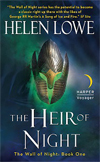
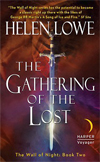






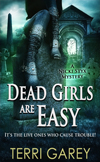

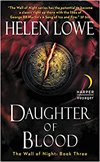
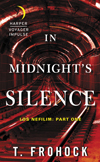

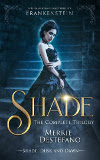

No comments:
Post a Comment